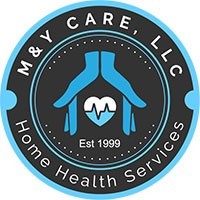Last month, I had the immense honor of testifying before the U.S. Senate Special Committee on Aging to take part in an important discussion on caring for America’s aging population in the midst of the current public health crisis.
The COVID-19 pandemic has upended American life in nearly every possible way. And while it’s difficult to find silver linings amidst the chaos it has caused, the novel coronavirus has offered us this: a frank lesson in where our health care system needs improvement – and also what we’re doing right.
Perhaps the most alarming lesson we’ve learned is that our country wasn’t prepared to meet our unprecedented preventive resource needs or the care needs of individuals suffering from COVID-19. We simply lacked the testing capacity, hospital and emergency room resources, and personal protective equipment to handle this pandemic. But, fortunately, we’ve also witnessed the strength of our individual health care providers – across all sectors – and their commitment to providing safe and exceptional care, despite tremendous obstacles.
As a member of the nation’s home health care community – which serves more than 3.5 million Medicare beneficiaries each year – I have never seen the system so strained, but I also have never felt prouder of the skilled, compassionate, and courageous people I work with day in and day out.
Across the nation, our more than 1 million home health and home care professionals have stepped up, in spite of all the challenges and risks, to help medically fragile seniors get home from hospitals and nursing homes – and in some cases, to help people avoid leaving their homes in the first place. We’ve kept older, vulnerable patients safely out of crowded care settings, helping to slow coronavirus transmissions. In fact, an estimated 41 percent of home health agencies have reported caring for COVID-19 positive patients in the home – effectively managing symptoms, providing treatments, and freeing up inpatient beds for those who need them most.
Even in the midst of this frightening virus, there has been opportunity to get excited about the future. For example, home health providers, like many others, have been able to step up and make a difference thanks to the spirit of innovation. Expansion of telehealth and virtual visits has been crucial to providing care, allowing providers to remotely assess patients and monitor vital signs like oxygen levels and other symptoms of COVID-19. Home health agencies have made it work – despite the fact that there is currently no direct reimbursement for telehealth in the Medicare program. Even before the pandemic, we knew that telehealth could improve the quality of home care, and COVID-19 has proven it is worth the investment for the future.
Our community has been proud to serve on the front lines during this coronavirus pandemic, but we have not been immune to its effects. The future – and our ability to remain strong for future waves of COVID-19 and the growing Medicare population – depend on the support from leaders in the administration and our champions in the Congress.
The home health community needs the support of Congress because, while the CARES Act was certainly a tremendous first step, further support is still needed. For example, in spite of the central importance of telehealth use within home health agencies, there is no direct reimbursement for these services. While flexibilities were provided under emergency waivers to ensure patients could maintain access to care during the COVID-19 crisis, these flexibilities will be needed over the long term. Home health agencies also continue to have added expenses related to personal protective equipment, infection control, employee testing, and added compensation of front-line caregivers working in the highest risk situations.
When making future policy decisions, lawmakers must recognize that Medicare reimbursement is estimated to have fallen off by 20 percent, and the recovery may be slowed by new outbreaks and setbacks. We also saw patient admission volume decrease significantly because of reductions in elective surgeries – like joint replacements that often require post-surgical home health. Further, some patients have refused care for fear of contracting COVID-19.
As the nation adjusts to its new COVID-19 reality, home health care providers are prepared to continue doing what we can to keep Americans safe. And we hope we can count on the administration and Congress to help by ensuring ongoing support for home health providers by addressing the gaps in telehealth reimbursement and continuing to make funds available to our sector through the Provider Relief Fund in the CARES Act. Doing so will help us to maintain the delivery of quality home-based care to our patients and their families.
The coronavirus emergency shines a light on much that we’re doing right as a nation to care for the most vulnerable patients. Support from lawmakers in these challenging times will help us to succeed.
By Steven Landers, Opinion Contributor — 06/19/20 07:00 PM EDT
Source: The Hill

